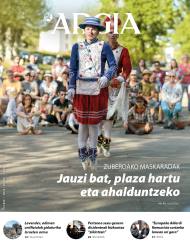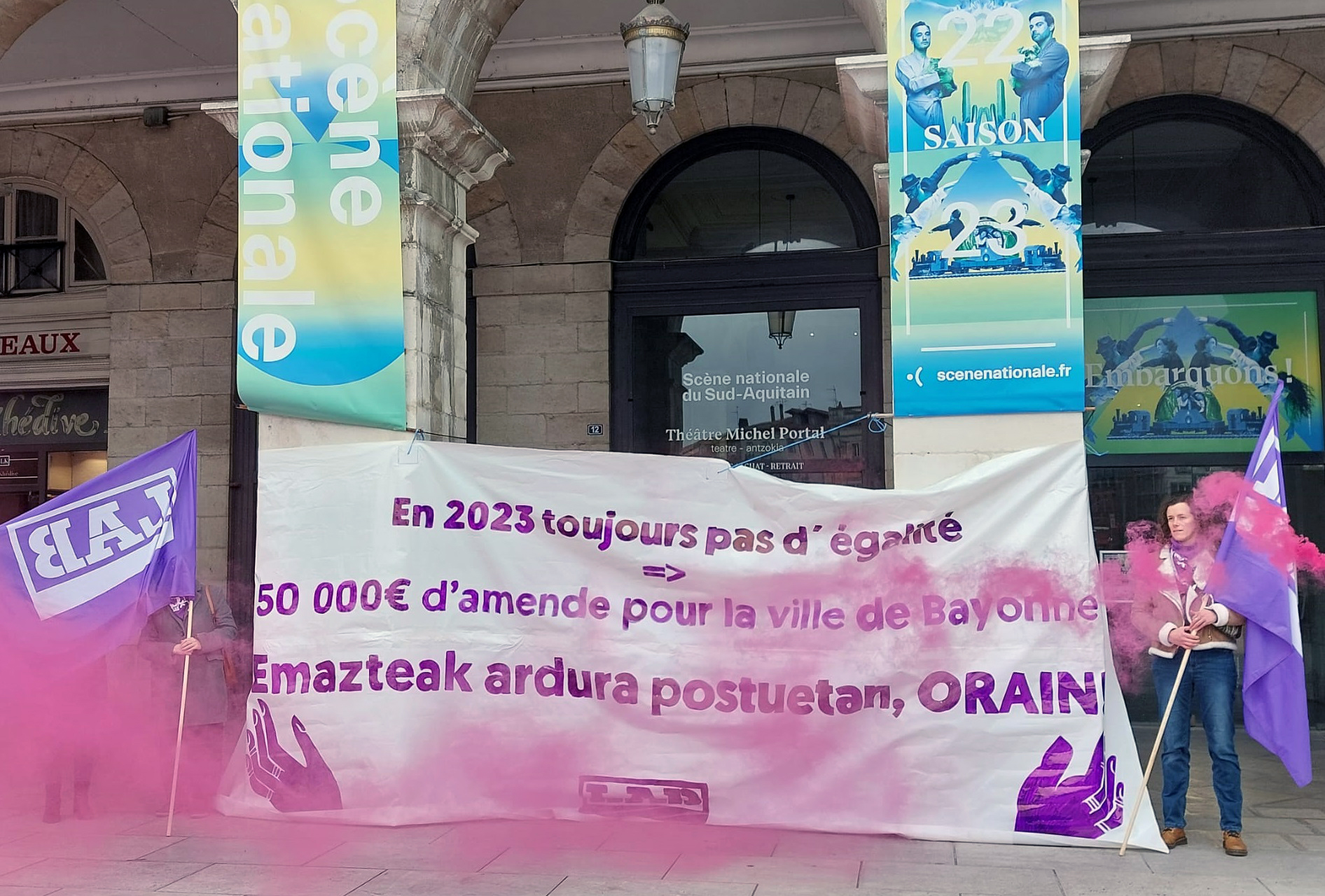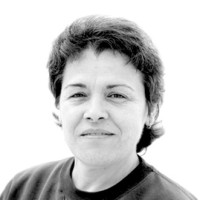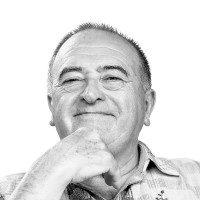Contradictory trends?
“The most Abertzale parliament of all time” vs. “Independence is at the historical lows.” These two statements have been heard in recent times and have increased following the elections held on 21 April in Araba, Bizkaia and Gipuzkoa. These two phrases, considered as findings, emerge on the table, and at first glance it seems that we can be facing contradictory political and sociological tendencies. But I believe that both must be qualified and focused on the objective behind each other.
The time is good for this, because in Hego Euskal Herria an electoral cycle has been closed, only the European elections remain. The municipal and forced elections in May, and the Spanish elections in July, showed trends that were reinforced by the votes of the CAV on 21 April, trends that have not been interrupted.
“The most nationalistic parliament of all time.” The electoral results have brought this reality, the nationalists of Gasteiz, of different kinds, are undoubtedly the majority. Neither the PNV nor EH Bildu have concealed this character in their programs and in the campaign, but at the same time, both the campaign and the political debate of recent times, with the Maratonian pre-campaign, have focused not on the national conflict, but on public services and the right to housing. Therefore, it seems that when voting citizenship has not been a central issue, especially in EH Bildu’s ability to attract votes.
Both the campaign and the last political debate have not focused on the national conflict: public services and the right to housing have been the focus of
In any case, the most stubborn seems to me a second statement: “Independence is at historical lows.” To this assertion that Spanish nationalism and its communication framework insist, I do not think we should give an uncritical acceptance from a Basque perspective. Because when people are asked directly about the subject, what do they answer? There are different things that deserve careful analysis. On the one hand, if we look at long series of surveys such as the CAPV Sociometer, we see that in 1998 it was 25% “for independence” and this year 22% (another 33% “for the situation”). Of course, there have been incidents, but above all it has happened that those who are “against independence” have been activated, especially since 2017, after the Catalan referendum.
I believe that that year is key to analysing social positions on independence. Until then there was a mantra in the political debate: “Without violence all political projects can be defended”. The Catalan Pacific process made it clear, even in Euskal Herria, that a peaceful process would have a violent response from the Spanish State. So things, when you ask about the political future otherwise, the results are different: the Nationmetro, for example, has shown in its measurements that the citizens do not respond abstractly about independence or, on the contrary, ask about a Basque state after an agreed referendum. In the latter case, the majority is in favour of the opposite.
Consequently, independence or social attitude towards a State is not clear, but nuanced. Without falling into the self-indulgence that electoral results can offer, I think it is advisable not to believe in this issue the interested discourse of Spanish nationalism.
Bidali zure iritzi artikuluak iritzia@argia.eus helbide elektronikora
ARGIAk ez du zertan bat etorri artikuluen edukiarekin. Idatzien gehienezko luzera 4.500 karakterekoa da (espazioak barne). Idazkera aldetik gutxieneko zuzentasun bat beharrezkoa da: batetik, ARGIAk ezin du hartu zuzenketa sakona egiteko lanik; bestetik, egitekotan edukia nahi gabe aldatzeko arriskua dago. ARGIAk azaleko zuzenketak edo moldaketak egingo dizkie artikuluei, behar izanez gero.
Otsailean bost urte bete dira Iruña-Veleiako epaiketatik, baina oraindik hainbat pasarte ezezagunak dira.
11 urteko gurutze-bidea. Arabako Foru Aldundiak (AFA) kereila jarri zuenetik epaiketa burutzera 11 urte luze pasa ziren. Luzatzen den justizia ez dela justizia, dio... [+]
MAITE: (biharko eguna antolatzen bere buruaren baitan) Jaiki, gosaldu, bazkaria prestatu, arropa garbitu, etxea garbitu, gizon hori jaiki, seme-alabak jaiki, hiru horien gosaria prestatu, haiek agurtu, erosketak egin, lanera joan, seme-alabak eskolatik jaso, merienda eman,... [+]
Matxismoa normalizatzen ari da, eskuin muturreko alderdien nahiz sare sozialetako pertsonaien eskutik, ideia matxistak zabaltzen eta egonkortzen ari baitira gizarte osoan. Egoera larria da, eta are larriagoa izan daiteke, ideia zein jarrera matxistei eta erreakzionarioei ateak... [+]
“Kasu, ez gitxu lo!”. Gure denbora eta manerekin baina heldu gira.
Azaroaren 25ean Baionako elgarretaratzera joan ez joan eta autoak nola partekatu pentsatzetik (joan-jina bi oren), bat-batean Lartzabalen elgarretaratze bat antolatu genuen, eta 47 emazte bildu!... [+]
Nahiz eta Nazio Batuen Erakundeak (NBE) 1977an nazioarteko egun bat bezala deklaratu zuen eta haren jatorriaren hipotesi ezberdinak diren, Martxoaren 8aren iturria berez emazte langileen mugimenduari lotua da.
Aurrekoan, ustezko ezkertiar bati entzun nion esaten Euskal Herrian dagoeneko populazioaren %20 atzerritarra zela. Eta horrek euskal nortasuna, hizkuntza eta kultura arriskuan jartzen zituela. Azpimarratzen zuen migrazio masifikatua zela arazoa, masifikazioak zailtzen baitu... [+]
Ez dut beti ulertzen nola aritzen ahal diren lur planeta honetako zati okitu, zuri, gizakoi eta kapitalistako aho zabal mediatikoak, beraiena, hots, gurea, zibilizazioa dela espantuka. Berriak irakurtzen baldin baditugu, alta, aise ohartuko gara, jendetasuna baino, barbaria dela... [+]
Administrazioko hainbat gai, LGTBI+ kolektiboko kideen beharrizanak, segurtasun subjektiboa, klima aldaketa, gentrifikazioa, ikus-entzunezkoak erabiltzeko modu berriak, audientzia-datuak jasotzeko moduak, dislexia, ikuspegi pedagogiko aktibo eta irisgarriak, literatur... [+]
Auzitan jar ez daitekeen baieztapen orokor eta eztabaidaezinaren gisan saldu digute hizkuntzak jakitea printzipioz ona dela, baina baditu bere "ñabardurak", edo esanahi ezkutuagokoak. Hemengo ustezko elebitasun kontzeptuaren azpian dagoen baina kamuflatzen den... [+]
Otzandu egin gara, katalanak eta euskaldunok, ekaitzaren ondoren. Saiatu ginen, bai; sendo ekin genion, eta gogor kolpatu gaituzte; ezin izan genien gure helburu zuzen, ezinbesteko, sakratuei eutsi. Eta porrotaren mingostasuna dastatu dugu, eta bigundu egin gara irabazleen... [+]
Iragana ulertzen saiatzen eta etorkizuna bideratzen, oraina joaten zaigu zenbaiti. Nire proiektuetako bat (hasi baina landu ez dudana oraindik) dudan zuhaitz genealogikoa egitea da. Horretan lagunduko didan liburutxo bat ere erosi nuen. Baina, hain da handia lana, liburutxoa... [+]
Desgaitasun fisikoa duen arkitekto baten alabaren etxea bisitatu ondoren idazten dut honako hau.
Desgaitasun fisikoa duten pertsonen taldeek ez dute arkitektoa maite, beraien bizitza zailtzen duen gaizkile bat kontsideratzen baitute. Gorrotoa ulerkorra da: arkitektoaren lanak... [+]
Ortutik itzuli berritan erabaki nuen Twitterretik alde egitea, oraindik Twitter zenean. Auzolan batera joan nintzen, brokoliak eta azaloreak landatzera, eta mindfulness efektua zapuztu zidan algoritmoak, idazle feminista transgorrotatzaile baten txioak jaurtitzearekin... [+]
Martxoaren 8a hurbiltzen ari zaigu, eta urtero bezala, instituzioek haien diskurtsoak berdintasun politika eta feminismoz josten dituzte, eta enpresek borroka egun hau “emazteen egunera” murrizten dute, emakumeei bideratutako merkatu estereotipatu oso bati bidea... [+]




















